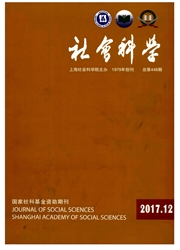

 中文摘要:
中文摘要:
身体在西方传统文化思想中一直处于受压抑或被遗忘的地位。但是从20世纪80年代开始,心智的具身特征逐渐成为许多学科的热门话题。具身心智的中心主张是,认知、思维、情绪、判断、推理、知觉、态度等心智活动是基于身体和源于身体的。身体与世界的互动塑造了心智的性质和方式。镜像神经元的发现为心智具身性提供了神经生物学的依据,而心理学的行为实验则证明身体的感觉一运动系统对心智产生实质性影响。大量的中文成语借助身体感受和身体动作来表达抽象理念和复杂情感,更进一步佐证了心智的具身特征。
 英文摘要:
英文摘要:
Body has always been in a depressed or neglected position in the tradition of the western culture. Since 1980s, however, embodiment has generated much excitement in the multiple disciplines such as philosophy, psychology, linguistics and neuroscience. Embodiment thesis refers to the idea that body plays a crucial role in the making of thinking, emotion, judgment , attitude and perception et al. It claims that mind is embodied. The discovery of mirror neurons gives support :to the embodiment of mind, and provides neural- biological ev.idences for it. Psychological experiments show that mind is not separable from bodily structure and bodily sensory-motor systems. A rich source of Chinese idioms express abstract ideas and emotional experience by bodily action and bodily feelings, which testify further the embodiment of mind.
 同期刊论文项目
同期刊论文项目
 同项目期刊论文
同项目期刊论文
 期刊信息
期刊信息
